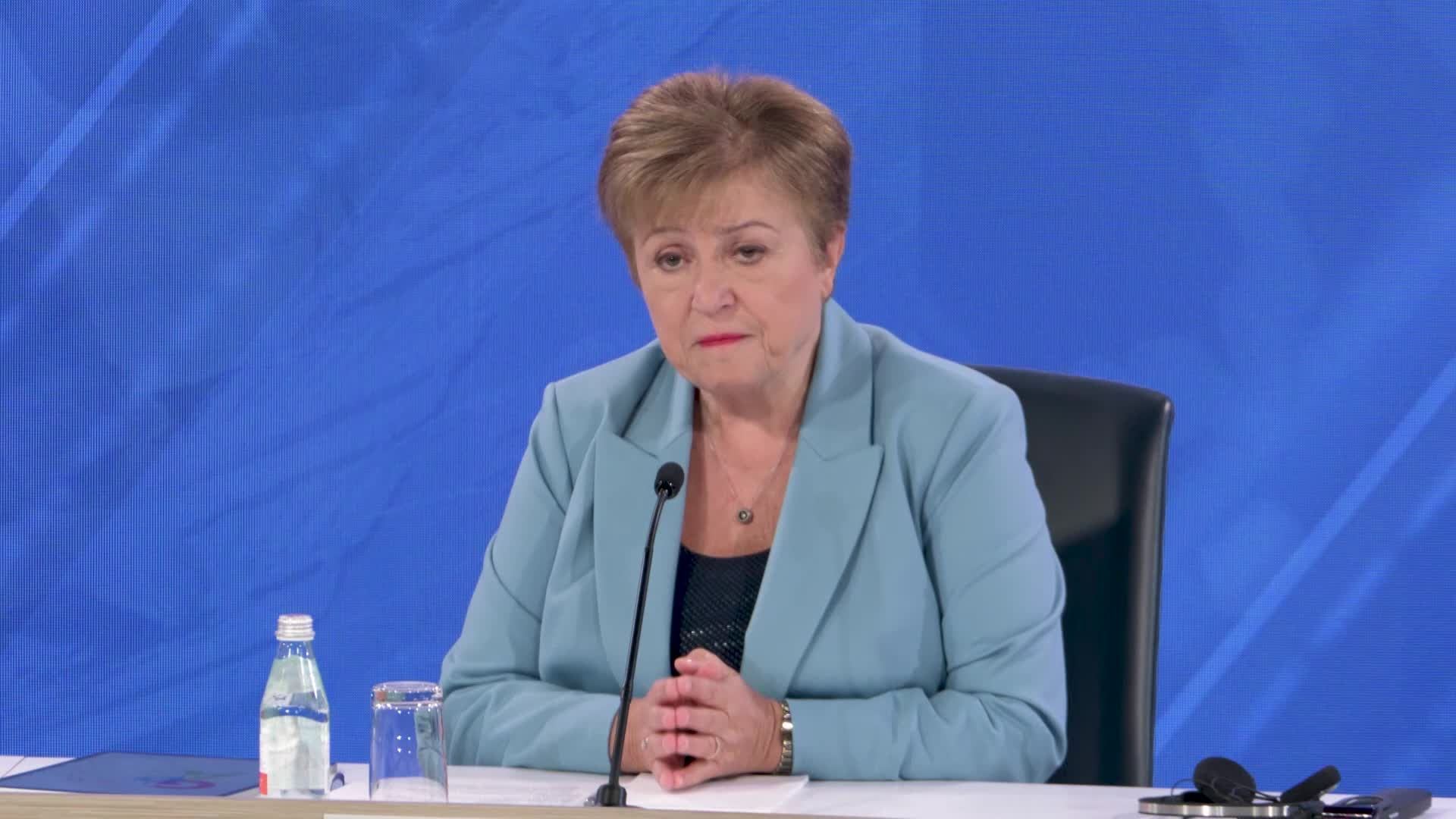Global growth in 2025 has proven more resilient than anticipated at the start of the year, though weak medium-term prospects and persistent uncertainty continue to weigh on the outlook. At the 2025 International Monetary Fund (IMF) Annual Meeting, Managing Director, Kristalina Georgieva framed the moment as one of guarded relief rather than celebration.
“Uncertainty has continued to go up, up, up; gold values too. As you saw in our latest The World Economic Outlook, global growth has held fairly steady and is projected to slow from 3.3% last year to 3.2% this year and 3.1% in 2026. That's better than we feared, better than we projected six months ago,” reported Georgieva.
Modest improvements in the global outlook compared to earlier forecasts have been encouraging, but they are not accidental. Better-than-expected growth reflects specific factors that have helped many economies weather uncertainty more effectively than anticipated.
“Since the global financial crisis, many countries, especially emerging markets – we have a chapter on emerging markets, policy fundamentals – have pursued sound policies; they have strengthened their institutions; they have strengthened their frameworks; this investment is paying off - and if I may say, "stay the course." Second, the adaptability of the private sector – which has shown agility in import front-loading, in supply chain strengthening, in just navigating uncertainty – is quite remarkable,” noted Georgieva.
Still, resilience should not be mistaken for momentum. Debt levels remain historically high, global growth is slowing, and widening economic imbalances are leaving households and communities more exposed to shocks, contributing to rising social tensions and economic unease.
“Medium-term growth prospects remain weak, public debt is near record highs and continues to climb, and the global economy is excessively imbalanced. The forces of change are making the global economy less predictable, and it is impacting people. People are anxious; they are taking to the streets to demand better opportunities,” said Georgieva.
Against that backdrop, Georgieva outlined a set of policy imperatives: unlocking private sector dynamism, rebuilding fiscal buffers, and narrowing imbalances between surplus and deficit economies. In an effort to help members adapt to more volatile global conditions, the IMF is sharpening its policy advice and strengthening its tools.
“At the IMF, we are focused on what we can do to help countries strengthen economic and financial stability, resolve balance of payment problems, build strong policies and institutions, and there are a couple of very important developments that we are pursuing. We have in motion comprehensive surveillance review to sharpen the focus on surveillance, including our advice on trade policies and domestic reforms to rebalance the economy. We have an ongoing review on conditionality; it would strengthen program design so we can better support our members and help them navigate this more uncertain world. To ensure our capacity to provide much needed financing to low-income countries, we need to continue to mobilize our members to fully implement the PRGT [Poverty Reduction and Growth Trust] reform, agreed last October,” urged Georgieva.
The IMF’s efforts are unfolding against a backdrop of fast-moving technological change. Among the forces reshaping the global economy, rapidly accelerating artificial intelligence stands out for its potential to boost growth — but also to widen existing gaps between countries if preparedness remains uneven.
“We have developed an AI preparedness index. It ranks 174 countries on four criteria: digital infrastructure, labor market skills, innovation and how it penetrates. In other words, is AI making a difference in transport, in agriculture, in healthcare? And the fourth is the trickiest: regulation in ethics. When we rank countries, here is a problem that arises: we have a very big distribution from the best to the laggers. Advanced economies in some emerging markets - among them, China, but also Gulf, most of the Gulf - they are concentrated in the top one third; low-income countries at the bottom. So, the risk we see is that we may end up in a world in which there is increasing productivity, but it is also a source of divergence within countries and across countries,” warned Georgieva.
These measures are part of a broader effort to ensure that the IMF and its members are better positioned to respond to future shocks, not just manage the present. Strengthening crisis response tools – especially by replenishing the Catastrophe Containment and Relief Trust – would help preserve the IMF’s capacity to provide targeted support. The emphasis is on reinforcing the global financial safety net to sustain close engagement with countries as conditions evolve.
“At the IMF, we will continue to help our countries to pursue opportunities in front of them. As a prudent steward of our members’ resources, we are going to be right there for them every step of the way. And I can share with you that I have had extensive meetings with regional groups across the membership. The interest in the fund to provide calibrated, detailed, country-specific advice for this moment of time is just overwhelming. It makes me feel very good that our members value what we can offer, and I know we will reflect on all this when the meetings are over,” concluded Georgieva.

